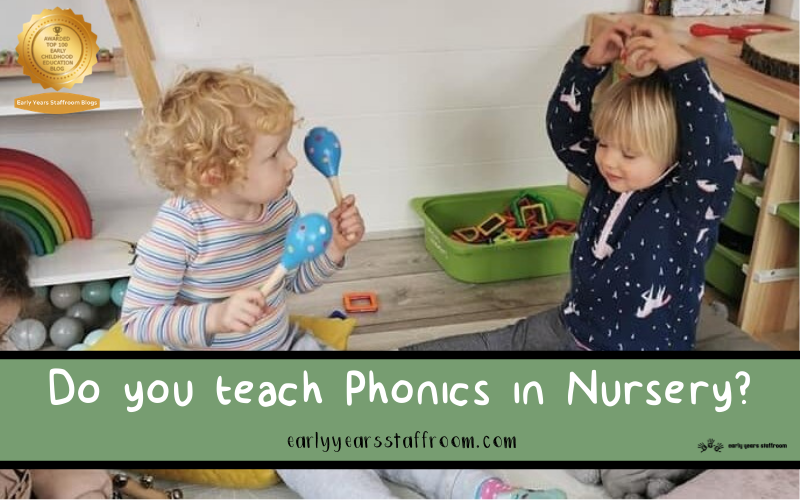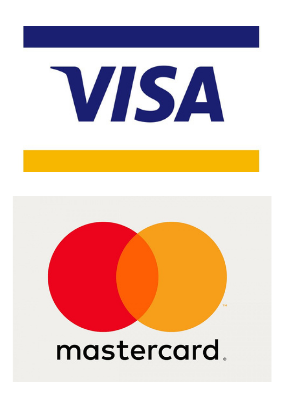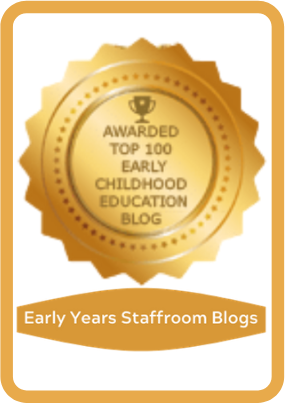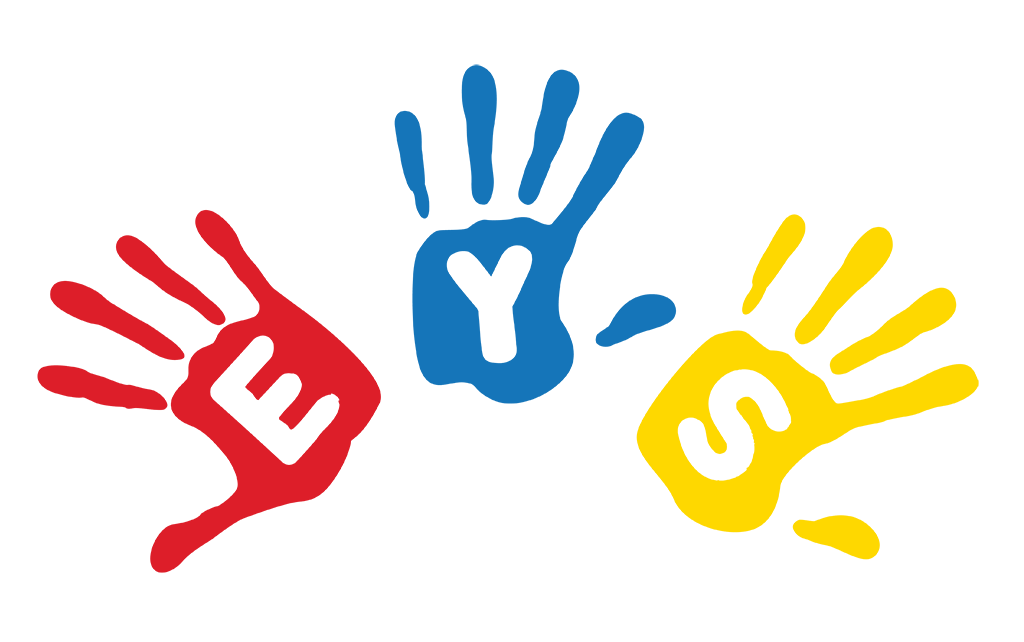Should phonics be taught in Nursery? It is an interesting question. Some may say, children of this age are far too young to learn phonics, let them play! children have too much to do already without learning to read before they are 4, children do phonics at school not nursery, I have not been trained on how to teach phonics, children have more important things to learn. The Rose Review (2006) found that early years educators are concerned about the important issue of when to start phonics. All are valid reasons which I will address in this article but firstly, we should take a closer look at what phase 1 phonics actually is because there appears to be a misconception around phonics and the various phases.
What is phase 1 phonics?
Phase 1 phonics concentrates on developing children’s speaking and listening skills and lays the foundations for the phonic work which starts in Phase 2. Phase 1 is about getting children attuned to sounds around them ready to begin developing oral blending (putting sounds together to make a word) and segmenting (separating sounds to help read a word) skills. Therefore Phase 1 phonics is Communication and Language, one of the prime areas of the EYFS. The prime areas are the most important to be taught in Nursery. The aspects relating to communication and language are responding to sounds, play with sounds, songs and rhymes, listening to others, understanding questions, developing a concept of things, understanding prepositions such as on top, under etc.
What are the benefits of teaching this?
After looking into what Phase 1 is, we can see that it is also actually extremely useful in teaching children the prime areas of the Early Years Foundation Stage (EYFS) Physical Development, Communication and Language and Personal Social and Emotional Development. These areas are the basis of the EYFS. The statutory framework for the early years foundation stage (2017) states that the prime areas of learning are ‘particularly crucial for igniting children’s curiosity and enthusiasm for learning, and for building their capacity to learn, form relationships and thrive ‘.
The EPPE research cited in the Rose Review (2006) found that attendance at high-quality, pre-school provision reduced the proportion of children entering school with low cognitive and language skills which put them at risk of a poor start to learning. With Phase 1 being the foundation for phonics and phase 2 predominantly being taught when children start school it is crucial for this to be taught in Nursery. Children are usually ready to learn Phase 1 phonics but ultimately it is down to the professional judgement of the Early Years Educator to decide if the child is ready to develop their communication and language skills or if they would benefit from developing other skills first. However, without a solid understanding of Phase 1 phonics some children will ultimately struggle later in their education so it is vital not to miss this stage. This is where Reception Teachers need to focus on Phase 1 in reception if it has not been developed in Nursery. Phase 1 is not teaching letters and letters should not be taught before Phase 1. As exciting as this may seem children tend to plateau and need to go back to phase 1 delaying their learning. Many Teachers report that children in reception, year 1 and even year 2 lack the phase 1 skills that have been missed. Teachers also report a huge leap in progress when children have a solid understanding of Phase 1 when entering reception.
How do we teach it?
Singing every day will develop language and emotional wellbeing. Reading picture books with children, identifying objects and sounds and singing. A ‘singing apron’ or ‘singing bag’ is really good fun where an object can be pulled out by a child for example a bobbin for the song; wind the bobbin up or a bus for the song; wheels on the bus. To enhance learning opportunities of gross and fine motor skills each song can have actions that you create with the children, you can do these standing up to help develop children’s balance, co-ordination, body awareness and rhyme.
The key is to make it fun and exciting, which is why the Early Years Staffroom have created the Phase 1 Phonics Program (also available to download for all members on the website) for all Early Years Educators. It is a simple guide to teaching phonics Phase 1 through playing games such as mystery object, giant battleships and pirates loot. Many have reported that this has given them a greater understanding of phase 1 phonics.
Conclusion
Peckham (2017) states that if not ‘preparation for school’ what is the purpose of Early Years Provision? I prefer to rephrase this to the purpose of Early Years Education is to prepare children for further education. Phase 1 phonics is just one small; part of the EYFS, it is teaching essential speaking and listening skills that are an essential part of education. It is certainly possible to start early phonic work while still giving children access to the full range of learning and development opportunities in the EYFS. A short fun game outside geared to teach children these skills is not going to have a negative impact on the long periods of essential play that children need to acquire the characteristics to be effective learners in the future for example their creativity, imagination and problem-solving skills. If children can have it all, which they should be able to, they will have a solid start to their future learning.
References
Department for Education and Skills (2006). Independent Review of the Early Teaching of Reading, Jim Rose.
Department for Education (2017) Statutory Framework for the Early Years Foundation Stage. Available at: https://www.gov.uk/government/publications/early-years-foundation-stage-framework–2.
Peckham, K., 2017. Developing School Readiness. [Place of publication not identified]: Sage Publications.
Early Years Staffroom, 2002. Phase 1 Phonics Program, Early Years Staffroom.
If you would like to become a member of the Early Years Staffroom please join here.










